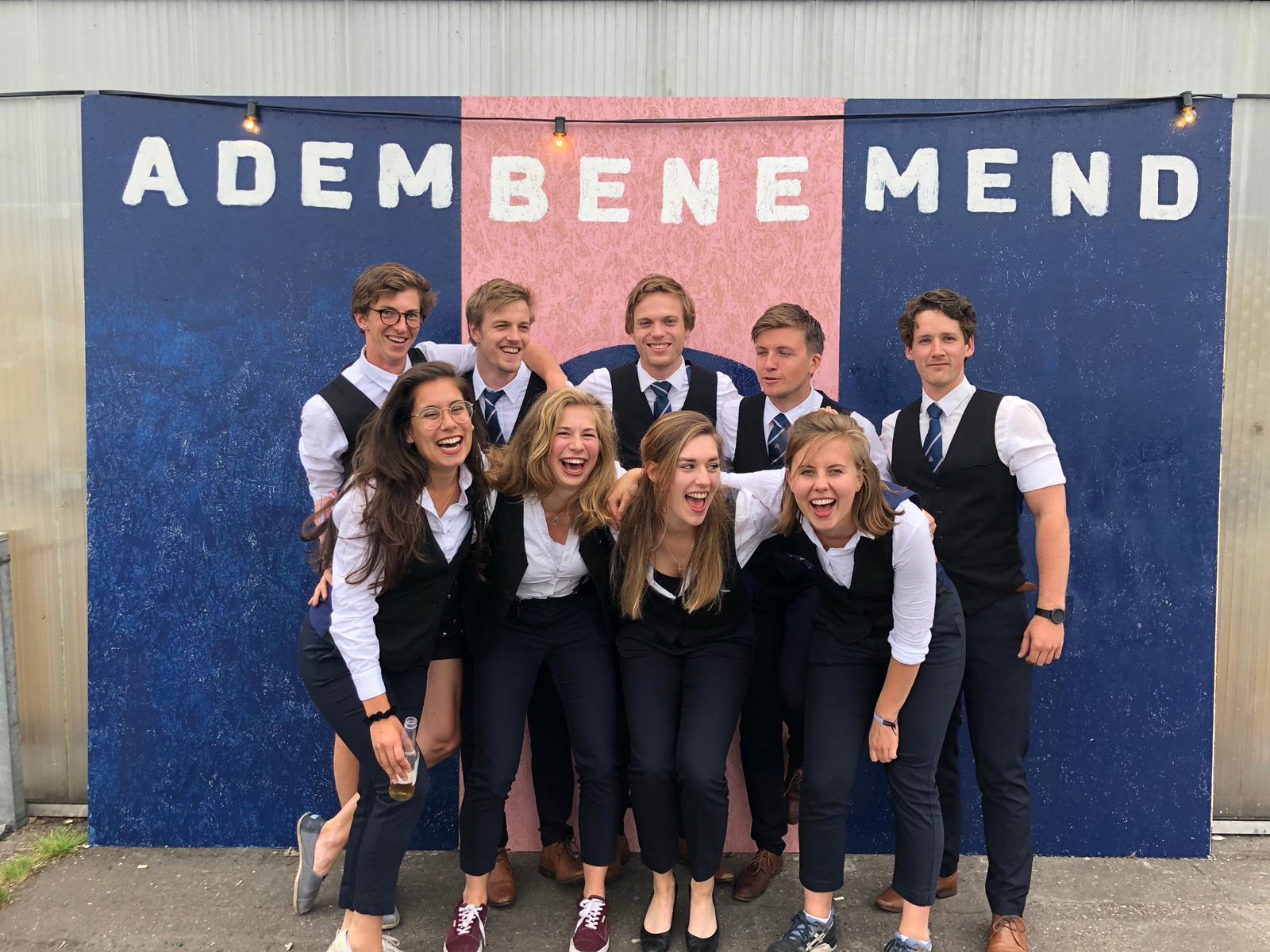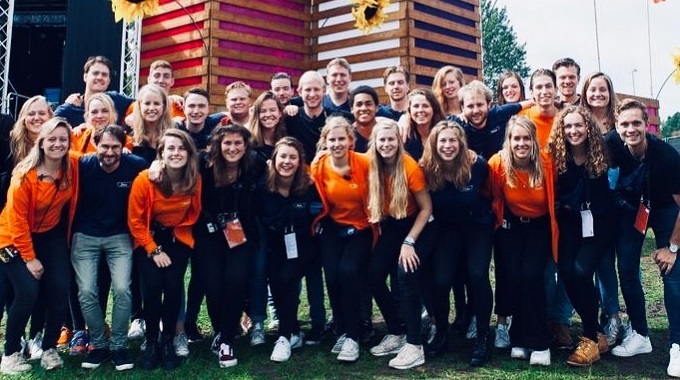Why you should join a board or committee

In case you haven’t noticed yet, Groningen is perhaps the city with the most student and study associations in the Netherlands. The prominent Vindicat building at the Grote Markt and over one hundred student and study associations are a clear testament of how popular they are among Groningen’s students. Joining an association has many perks: Not only is it a great way to get to know people outside of your regular circle, but it is also a great opportunity to boost your CV and learn some valuable soft skills. Moreover, some board positions even offer financial compensation for your work. But with so many different associations available, which one should you join? In this blog post, Danique and Asmo, who both have been active in various different associations, will share their experiences with you and explain the differences and perks of the various types of study, student and political associations.
Faculty/University Council Party (Asmo)
Joining a Faculty or University Council party is a great option for you if you are interested in politics and want to make your voice heard. In my second year, I was fortunate enough to be one of twelve students to be elected into the University council, giving me the opportunity to represent the interests of over 30,000 RUG students. During my one-year term I got to not only see the university from an entirely different perspective but also ask and criticize the board and draft memo’s which where then debated in the council. I was also able to build a large network of contacts across all faculties of the UG, including both staff and students. In retrospect, it was an incredible year that I would not want to miss. That being said, the workload in such a position is also very high (ca. 20 hours a week), which is not always easy to combine with a full-time study. Following my year in the university council, I also joined the Faculty Council of law. In comparison, the overall workload here was noticeably less (5-10 hours a week), but without a doubt just as interesting!
Study association board and committee (Asmo)
A study association is an association that is directed at students from a specific discipline. For example, you can have a study association representing the interests of law students in general, but also other ones that specifically focus on criminal law students. Study associations generally offer a wide range of activities. From study trips, guest lectures and parties - there is a wide range of events to choose from. Of course, organizing so many different activities requires a lot of helping hands. This is why, besides having a board, a study association will also have several committees that organize specific events or take over certain tasks. Depending on the committee and position you are in the workload may vary. Being the president of a study association this year, I currently spend around 10 hours per week on association-related work. This is not uncommon for board members, but it is, of course, a considerable time investment next to your studies. However, if you decide to join a committee instead you should not expect more than 2-3 hours of work per week which is usually very doable. Besides putting your soft skills into practice, study associations are also a great way to get to know people from your study programme get exclusive member discounts and boost your CV.

Student association committee (Danique)
For the past three years, I have been active within the rowing association Gyas. In my first two years, I rowed competitively and was an active member in the Competitive Rowers Committee. in which we arranged events for the rowers, such as dinners or social events. In my third year, I had a more intensive committee year, where I was in the Lustrum Committee, organizing the association’s lustrum year (anniversary year) and coordinating all the events associated with the lustrum.
Both committees have taught me a lot, like the power of negotiation and how to hold meetings and work with different people. I’ve learned how to organize events, managing a group of people and becoming more open-minded. It’s a great way to stay active within your association and give back to the association. When I decided to apply for Lustrum Committee, I wanted to be able to give something back to the community, as it has offered me so much the previous two years. You get to know more of the members, and it expands your network. I definitely recommend doing a committee if you are part of an association!

Student organization board (Danique)
After having been active within my association for three years, it had become more of a second home. So I wanted a more professional challenge outside of my comfort zone. A friend of mine had suggested I apply for the Advisory Board of the KEI foundation. This board advises and supervises the daily board about policy issues, approving budgetary reports and writing and monitoring the execution of long term policies for the foundation. I only started this board recently, but it has already taught me a lot and is more professional compared to my previous experiences. It’s a great opportunity to learn more about the organizational structure of foundations like KEI and it’s taught me to think both critically and analytically. Not to mention, it is great for networking and meeting new people outside of your social circle, and a great training for your professional life.

Of course, everything had its downsides, so a board year does too. Spending 10-15 hours per week on your board can mean less time for studies which can increase stress or de-prioritize your uni work. Part-time board years generally take up more time than expected. You also need to take into consideration that taking a full board year from uni means a full year of study delays. Board meetings can be long and tedious, and without a doubt, you’ll get into a lot of disagreements which can be frustrating at times. However, it’s all a learning experience that you’ll definitely apply at some point in your life, and even with the few downsides, definitely a recommended experience.

